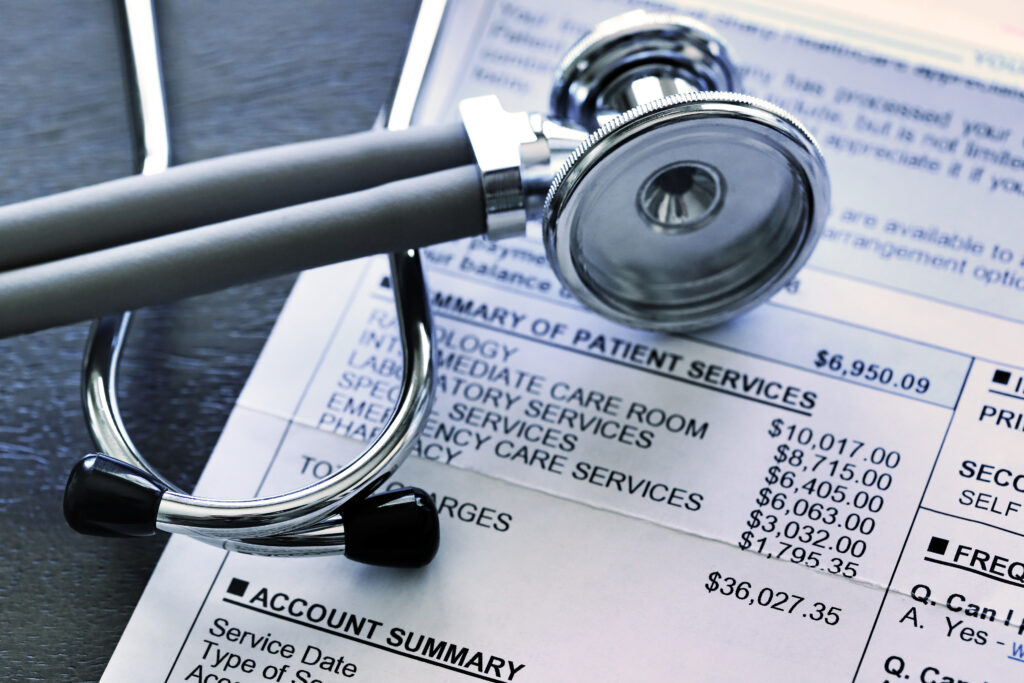D.C. lawmakers are forging ahead with a bill that would keep medical debt off credit reports, despite new guidance from the federal consumer watchdog agency saying only the federal government has that right.
More than a dozen states, including Virginia and Maryland, have similar laws on the books to protect people from the financial fallout of unpaid hospital bills, which can make borrowing money for mortgages and cars more expensive and could derail job and rental applications.
About 14 million people in the United States collectively owe at least $220 billion in medical debt, which data shows disproportionately impacts people of color, according to a KFF analysis.
The Consumer Financial Protection Bureau last month issued a nonbinding interpretation of the Fair Credit Reporting Act saying states (and D.C.) cannot lift medical debt from credit reports.
The guidance is the opposite of conclusions reached by the bureau in 2022 under the Biden administration. President Donald Trump earlier this year named Russell Vought as acting director of the bureau, which is an independent federal agency created after the 2008 financial crisis as a consumer watchdog.
The change comes as states prepare for new rules and other developments that could affect people’s ability to access and pay for health care. That includes work requirements and other changes in the congressional budget reconciliation law as well as the expiration of enhanced premium subsidies for plans on the Affordable Care Act marketplace. The actions mean more Americans will be uninsured or underinsured and accruing medical debt.
“This is just like twisting the knife,” said Chi Chi Wu, staff attorney at the National Consumer Law Center, a nonprofit that advocates for economic justice for low-income people.
Although the updated CFPB guidance doesn’t invalidate state laws, debt collectors have already sued over legislation in Colorado, she said.
“Ultimately, it’s up the court,” Wu said. “The Trump-era CFPB doesn’t have the final say.”
A Maryland law prohibiting the reporting of medical debt on credit reports went into effect Oct. 1. Virginia put a similar law on the books last year, and a second law that takes effect next fall would limit collection methods. Left unpaid, debt can wreak havoc on credit scores that agencies rely on to set borrowing terms like interest rates.
“I didn’t think this would have any effect on us in Virginia, because I couldn’t see the providers going against our law just in hopes that this federal guidance would work,” said Jay Speer, executive director of the Virginia Poverty Law Center.
D.C.’s government made cuts this year to D.C. Medicaid and the city’s Health Care Alliance program — which covers District residents who don’t qualify for Medicaid — to help cover a $1 billion shortfall that city officials attribute to Trump’s deep cuts to the federal workforce, reduced income and consumer spending, and a weak commercial real estate market post-pandemic.
In sunnier financial times, D.C. leveraged 2022 surplus funds to cancel $42 million in medical debt for 62,000 residents last year through a partnership with a nonprofit that helps cities and states purchase the debt for pennies on the dollar.
About 60 percent of the total debt relief benefited 36,000 residents making $25,000 or less, and 80 percent of residents receiving the relief live in D.C. Zip codes that are majority Black or Latino, city officials said at the time. Beneficiaries were D.C. residents earning up to four times the federal poverty level or whose medical debt is at least 5 percent of their income.
About half of D.C. residents have health coverage through commercial insurance, which can carry significant co-pays and cost-sharing.
Although debt forgiveness is effective for people who have already accrued unpaid bills, Jennifer Holloway, staff attorney at Tzedek DC, which advocates for the legal rights of low-income residents, said it is a Band-Aid. The nonprofit in a report this summer proposed systemic changes to protect residents from medical debt, including lifting this debt from credit reports.
The report prompted D.C. council member Christina Henderson (I-at large) to introduce a bill with seven of her colleagues that would prohibit the reporting of medical debt to credit reporting agencies and the imposition of wage garnishments and home liens for medical debt.
It would also require health care providers to publicize financial assistance programs and put the D.C. Department of Health and the attorney general in charge of enforcement and oversight of the law.
Henderson noted 2022 research from the CFPB found that medical debt does not mean someone is more likely to default on other debts or bills.
“This kind of shows the whiplash nature of what states and jurisdictions are going through,” she said. “The only thing that changed is who is running that agency.”
Even with the new federal guidance, Henderson said she plans to move ahead with a hearing set for Dec. 15.
The post Feds object to laws that shield patients from medical debt appeared first on Washington Post.




